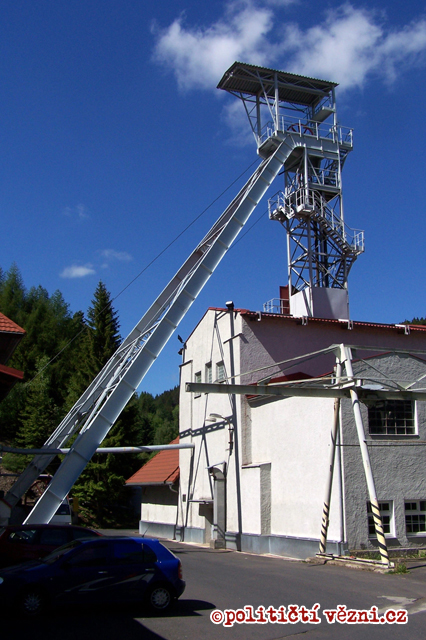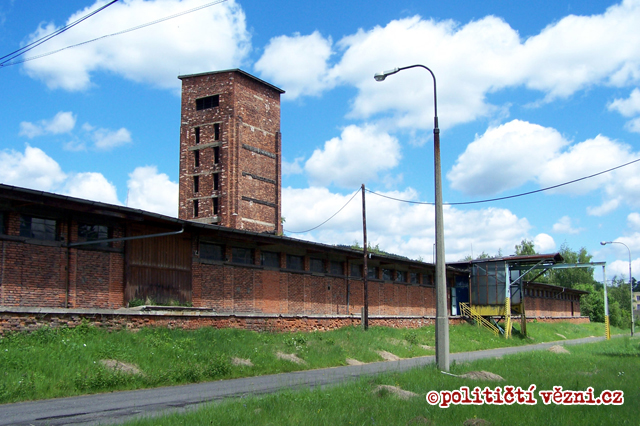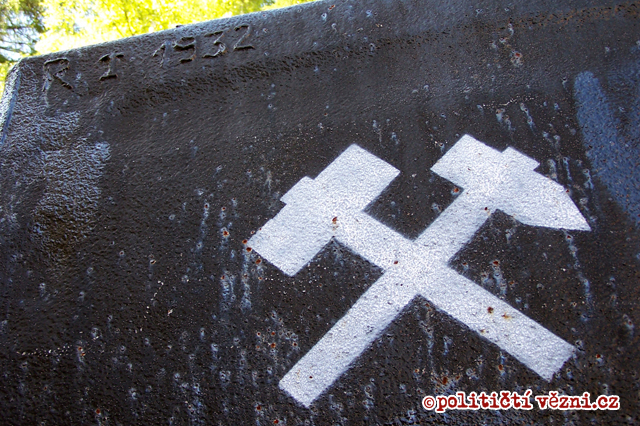The Fate of Czechoslovak Political Prisoners after Release
The full rehabilitation of Communist and non-Communist victims of Stalinist repression represented a major problem for the Czechoslovak Communist regime for decades. Even though the desire to pursue the victims’ full rehabilitation was evident in the context of the democratization of Prague Spring; however, the invasion by Warsaw Pact troops on 21st August 1968 gradually stopped this effort. Communists were afraid of full rehabilitation, because, in their opinion, information about the vast amount of corruption and persecution undermined the status and authority of the regime. Amnesties issued by the President of the Republic served as suitable remedial tools for many years, as each collective act served as the saving grace that enabled to release many of political prisoners without the need to order a retrial.
That social problems should stem from amnesties is due to the fact that the released prisoners were still viewed as criminals, which in turn prevented a full return to society as well as an inability to obtain compensation for their unlawful convictions. Interviews with former political prisoners prove them to be well aware of this fact. Some became paranoid of being convicted of even very light offenses; a speeding fine, for instance. As documented in the words of Josef Stejskal:
"For ten years, I requested that my punishment be annulled. I already had a driver's license and I knew that to commit an offense as a driver, I could get into conflict with the law and as a recidivist I could go to prison again."[1]
The largest release of political prisoners was based on the amnesty of 9 May 1960. The proposal for amnesty was discussed by the Politburo of the Central Committee of Communist Party of Czechoslovakia, which approved the list of released political prisoners. This amnesty designated 5,319 people, but three thousand prisoners were excluded from this amnesty regarded as instigators of "subversive" activities. Persons convicted of offenses against the state were released on the condition that they would not commit an intentional crime in the next ten years. All political prisoners had to sign a declaration that they would not talk to anyone about the state’s methods of investigation or the conditions in prison. Those released from prison had been strongly warned against attempts at public appearances and interviews about their experience of staying in jail.
Political prisoners were still socially and civically discriminated after release. They were not allowed to work in those jobs for which they were qualified. They were additionally prohibited from performing any public function. The majority of narrators more or less confirmed existential problems. In addition, some had to contend with the changing socio-economic status families, which represented for many a great mental strain. Statements such as...
“It was terrible. I suddenly was a poor wretch. Suddenly we had nothing,”[2] (Květoslava Moravečková)
... allow us to speculate that the narrator felt a direct threat to her existence, and again experienced a feeling of anxiety.
Children of released political prisoners were socially discriminated as well since they could not attend the secondary school of their choice and were prevented from studying at universities. There was a system of politicized and non-transparent recruitment which exclude these children from the possibility of studying.
They were followed by State Security even after their release since it thought that the political prisoners inspired each other while in jail and that their "criminal" activity would extend to high and dangerous conspiracies. Some narrators said that they were even lured to cooperate with State Security in exchange for better jobs or better employment for members of their families. To their houses or apartments were placed Informants were assigned to their houses or apartments to live with them and monitor their movements (Květoslava Moravečková). In addition, the released political prisoners faced with the society’s prevailing fears: their former friends were afraid to associate with them. Therefore, some of them did not seek to renew old friendships so as to avoid complicating their lives. These feelings in turn united the community of released political prisoners. They visited each other; confided their problems; and married one another, for as in some of the former prisoners’ words, “nobody could understand them more than the one that went through similar experiences”.
Most of political prisoners who recieved amnesty suffered from such a fear of returning to jail that they did not do any further political activities. In the March 1965 evaluation report of the amnesty for the Bureau of the CPC Central Committee it is written:
"The experiences of people who were amnestied in 1960 and 1962 as well as conditionally dismissed and pardoned of this group are good.The vast majority of them legitimately engaged in work, often with excellent work ethic – persistant efforts as well as appropriate participation in a public life."[3]
However, this changed during the Prague Spring, when a space for freedom of the press was opened and all manner of civic activities were created. The question of rehabilitation and correction of past injustices resonated in the society more and more. Among the movements which brought together former political prisoners was Club 231, named after the Act No. 231/1948 Coll., to protect the People's Democratic Republic. It is known under the title K 231 and it was established on 31st of March 1968 in Prague. Professor Karel Nigrín became the Chairman of the Preparatory Committee and Jaroslav Brodský was elected for a secretary. There were up to 80 thousand members from all over Czechoslovakia. The main goal of the association of former political prisoners was their rehabilitation – not only judicial, civil, and property, but also political and moral justice.
The rehabilitation options for ordinary political prisoners were highly difficult. The Barák and Kolder Commissions, which were formed to investigate the corruption of the 1950s, dealt with cases of leading Communist officials. The critical results of the Piller Commission were never completely tightened because of the invasion of the Warsaw Pact troops. One possibility was the adoption of the rehabilitation law, and its formation contributed in many ways K 231. The resulting Law No. 82/1968 Coll., Concerning Judicial Rehabilitation, went into effect on the 1st of August 1968. The development of judicial rehabilitation did not disturb the occupation of Czechoslovakia by Warsaw Pact troops. As of September 1969, Czechoslovakia registered approximately 23,306 proposals for internal review; moreover, the General Prosecutor's Office received around 7,000 complaints for violation of the law. The Soviets initially had no objections to the ongoing revision of the corruption of the 1950s, but the situation over the coming months gradually began to change. Soviets, as well as the new Czechoslovak leadership, worried especially about K 231’s activities, for K 231 officially acted as a special interest group even while representing political prisoners. This organization had to be canceled. Then General Prosecutor's Office, Supreme Court, Ministry of Interior or Ministry of Justice started to undergo personnel changes of those in leadership positions. The new authorities began to reject the rehabilitations.
For ordinary political prisoners, rehabilitation was very difficult. as is proven by the interviews with former political prisoners. Many of the released prisoners did not apply to rehabilitation; other interviewees said that the rehabilitation of 1968 ended in a fiasco (Drahomíra Stuchlíková, Jozef Kycka). Although some were later rehabilitated and given compensation, in the post-1968 period of so-called “normalization,” rehabilitation was abolished, and beneficiaries were forced to return the compensation (Pavel Levý).[4] Many have since been rehabilitated after year 1989 under the Judicial Rehabilitation Act No. 119/1990 Coll.
Author: Klára Pinerová
This interview's English translation has been gratefully edited by Ms. Olivia Webb.
Literature:
BUŠKOVÁ, Kristýna. Ženy v komunistických lágrech: psychologické dopady politického věznění a způsoby jejich zvládání. In BOUŠKA, Tomáš – PINEROVÁ, Klára – LOUČ, Michal (eds.). Českoslovenští političtí vězni. Životní příběhy. Praha, 2009.
HAVLÍČKOVÁ, Petra. Politické procesy z padesátých let minulého století. Diplomová práce. Masarykova univerzita v Brně, 2009.
HOPPE, Jiří. Opozice ´68. Sociální demokracie, KAN a K 231 v období Pražského jara. Praha: PROSTOR, 2009.
KAPLAN, Karel. Druhý proces Milada Horáková a spol. – rehabilitační řízení 1968-1990. Praha: Karolinum, 2008.
SLABOTÍNSKÝ, Radek. Amnestie prezidenta republiky v letech 1960 a 1962 a rehabilitace politických vězňů v 60. letech. Dizertační práce. Masarykova univerzita v Brně, 2010.
[1] The interview with Josef Stejskal, the fieldworker: Michal Louč. Recorded in Radhošť, 2006-04-20 and 2007-02-20. The interview is archived in the Oral History Center (COH) in Prague and was also published in Czech on the website www.politicalprisoners.cz.
[2] The interview with Květoslava Moravečková, the fieldworker: Klára Pinerová. Recorded in Malín, 2008-02-17 and 2008-07-04. The interview is archived in the Oral History Center (COH) in Prague and was also published on the website www.politicalprisoners.eu and books BOUŠKA, Tomáš; PINEROVÁ, Klára. Czechoslovak Political Prisoners: Life Stories of 5 Male and 5 Female Victims of Stalinism. Praha, 2009. BOUŠKA, Tomáš; PINEROVÁ, Klára; LOUČ, Michal. Českoslovenští političtí vězni: životní příběhy. Praha, 2009.
[3] HOPPE, Jiří. Opozice ´68. Sociální demokracie, KAN a K 231 v období Pražského jara. Praha: PROSTOR, 2009, s. 210.
[4] The interview with Pavel Levý, the fieldworker: Michal Louč. Recorded in Pardubice, 2006-05-30. The interview is archived in the Oral History Center (COH) in Prague and was also published in Czech on the website www.politicalprisoners.cz.



